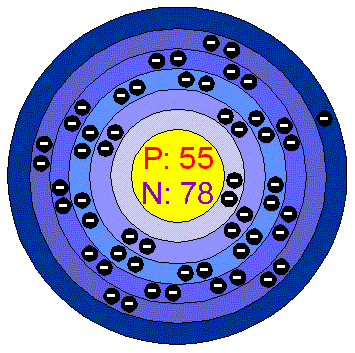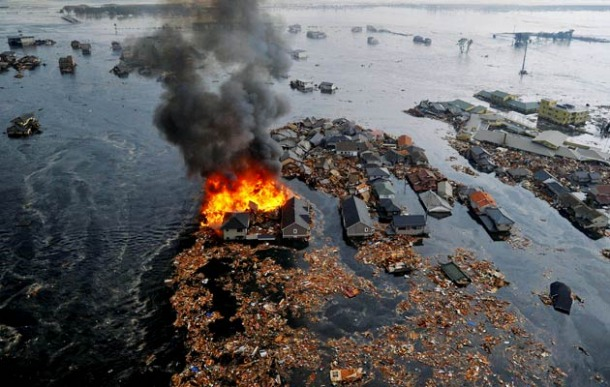Fukushima Fraud and Corruption: Japanese Organized Crime Involved in Recruitment of “Specialized Personnel”

What prevails is a well organized camouflage. The public health disaster in Japan, the contamination of water, agricultural land and the food chain, not to mention the broader economic and social implications, have neither been fully acknowledged nor addressed in a comprehensive and meaningful fashion by the Japanese authorities.
The crisis in Japan has been described as “a nuclear war without a war”. In the words of renowned novelist Haruki Murakami:
“This time no one dropped a bomb on us … We set the stage, we committed the crime with our own hands, we are destroying our own lands, and we are destroying our own lives.”
Several Global Research reports and background articles have outlined the dangers of Worldwide radiation resulting from the Fukushima disaster.
This disaster is now being sustained and aggravated by the incompetence of TEPCO as well as political camouflage by the Abe government.
Fukushima and the Yakuza
There is another dimension: The coordination of the multibillion dollar Fukushima decontamination operation relies on Japan’s organized crime, the Yakusa, which is actively involved in the recruitment of “specialized” personnel for dangerous tasks.
“The complexity of Fukushima contracts and the shortage of workers have played into the hands of the yakuza, Japan’s organized crime syndicates, which have run labor rackets for generations.” (Reuters, October 25, 2013)
The Yakuza labor practices at Fukushima are based on a corrupt system of subcontracting, which does not favor the hiring of competent specialized personnel. It creates an environment of fraud and incompetence, which in the case of Fukushima could have devastating consequences. The subcontracting with organized crime syndicates is a means for major corporations involved in the clean-up to significantly reduce their labor costs.

Fukushima in the wake of the Tsunami, March 2011
This role of Japanese organized crime also pertains to the removal of the fuel rods from Reactor no. 4. As documented in several GR articles, this undertaking –if mishandled– by careless workers under the lax supervision of corrupt subcontractors (linked to the Yakusa) creates an environment which could potentially lead to a massive radioactive fallout:
An operation with potentially “apocalyptic” consequences is expected to begin in a little over two weeks from now – “as early as November 8″ – at Fukushima’s damaged and sinking Reactor 4, when plant operator TEPCO will attempt to remove over 1300 spent fuel rods holding the radiation equivalent of 14,000 Hiroshima bombs from a spent fuel storage tank perched on the reactor’s upper floor.
 While the Reactor 4 building itself did not suffer a meltdown, it did suffer a hydrogen explosion, is now tipping and sinking and has zero ability to withstand another seismic event.
While the Reactor 4 building itself did not suffer a meltdown, it did suffer a hydrogen explosion, is now tipping and sinking and has zero ability to withstand another seismic event.
To remove the rods, TEPCO has erected a 273-ton mobile crane above the building that will be operated remotely from a separate room….
A recent Reuters report documents in detail the role of Japan’s Yakuza and its insidious relationship to both TEPCO as well as agencies of the Japanese government including the Ministry of Health, Labor and Welfare:
Nearly 50 gangs with 1,050 members operate in Fukushima prefecture dominated by three major syndicates – Yamaguchi-gumi, Sumiyoshi-kai and Inagawa-kai, police say.
Ministries, the companies involved in the decontamination and decommissioning work, and police have set up a task force to eradicate organized crime from the nuclear clean-up project. Police investigators say they cannot crack down on the gang members they track without receiving a complaint. They also rely on major contractors for information.
In a rare prosecution involving a yakuza executive, Yoshinori Arai, a boss in a gang affiliated with the Sumiyoshi-kai, was convicted of labor law violations. Arai admitted pocketing around $60,000 over two years by skimming a third of wages paid to workers in the disaster zone. In March a judge gave him an eight-month suspended sentence because Arai said he had resigned from the gang and regretted his actions.
Arai was convicted of supplying workers to a site managed by Obayashi, one of Japan’s leading contractors, in Date, a town northwest of the Fukushima plant. Date was in the path of the most concentrated plume of radiation after the disaster.
A police official with knowledge of the investigation said Arai’s case was just “the tip of the iceberg” in terms of organized crime involvement in the clean-up.
A spokesman for Obayashi said the company “did not notice” that one of its subcontractors was getting workers from a gangster.
“In contracts with our subcontractors we have clauses on not cooperating with organized crime,” the spokesman said, adding the company was working with the police and its subcontractors to ensure this sort of violation does not happen again.
In April, the Ministry of Health, Labor and Welfare sanctioned three companies for illegally dispatching workers to Fukushima. One of those, a Nagasaki-based company called Yamato Engineering, sent 510 workers to lay pipe at the nuclear plant in violation of labor laws banning brokers. All three companies were ordered by labor regulators to improve business practices, records show.
In 2009, Yamato Engineering was banned from public works projects because of a police determination that it was “effectively under the control of organized crime,” according to a public notice by the Nagasaki-branch of the land and transport ministry. Yamato Engineering had no immediate comment.
…
In towns and villages around the plant in Fukushima, thousands of workers wielding industrial hoses, operating mechanical diggers and wearing dosimeters to measure radiation have been deployed to scrub houses and roads, dig up topsoil and strip trees of leaves in an effort to reduce background radiation so that refugees can return home.
Hundreds of small companies have been given contracts for this decontamination work. Nearly 70 percent of those surveyed in the first half of 2013 had broken labor regulations, according to a labor ministry report in July. The ministry’s Fukushima office had received 567 complaints related to working conditions in the decontamination effort in the year to March. It issued 10 warnings. No firm was penalized.
One of the firms that has faced complaints is Denko Keibi, which before the disaster used to supply security guards for construction sites. (Special Report: Help wanted in Fukushima: Low pay, high risks and gangsters, by Antoni Slodkowski and Mari Saito, Reuters, October 25, 2013)
(To Read Reuters article click:
http://ca.reuters.com/article/idCABRE99O04320131025?sp=true
In the face of ceaseless media disinformation pertaining to the dangers of global nuclear radiation, our objective at GR has been to break the media vacuum and raise public awareness, while also pointing to the complicity of the governments, the media and the nuclear industry.
We call upon our readers to spread the word.

